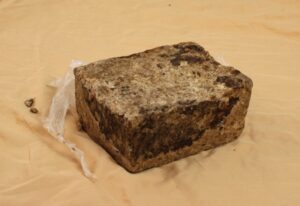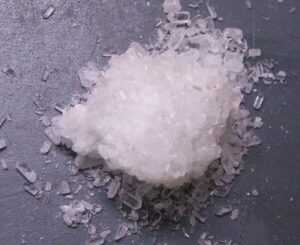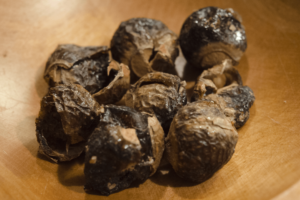If there’s one thing that’s clear, it’s that different people with allergic contact dermatitis (ACD) react to different things and have different “safe products.” The general advice from doctors for contact dermatitis sufferers is to avoid their allergens. Newly-diagnosed ACD patients may find themselves directed toward any number of products which do not contain their allergens but contain a lot of other potential allergens.
Many ACD sufferers themselves follow a different routine – avoid as many common contact allergens as possible. Why? Susceptibility to contact allergies means that these allergens put your immune system on high alert. Exposure to potential allergens while the body is already on high alert can cause the immune system to begin to see new chemicals as invaders, creating new allergies.
So what do people use to safely clean their bodies? The product used depends on the person and their allergies, with people sometimes switching between products. Doctors often recommend reducing the frequency of baths and showers entirely for dermatitis sufferers. The following are found to be safe with many ACD sufferers:
Water – Water isn’t a disinfectant (although many peoples’ water contains chlorine, which *is* a disinfectant), but then again, a good portion of the microbes on our bodies are beneficial to us. If you’re just trying to wash off a thin layer of sweat, or water may be all you need.
 Kiss My Face Olive Oil Soap – This soap contains only three ingredients: Olive oil, water, and sodium hydroxide. Oil, water, and sodium hydroxide (lye) are the three ingredients required to make any kind of solid soap, with potassium hydroxide (potash) used in place of the lye in soft/liquid soap recipes. This means that a soap containing only oil, water, and potash or lye is the purest form of soap you can get. Olive oil is considered a very mild cleanser when used to make soap, which is why it is often recommended for ACD sufferers.
Kiss My Face Olive Oil Soap – This soap contains only three ingredients: Olive oil, water, and sodium hydroxide. Oil, water, and sodium hydroxide (lye) are the three ingredients required to make any kind of solid soap, with potassium hydroxide (potash) used in place of the lye in soft/liquid soap recipes. This means that a soap containing only oil, water, and potash or lye is the purest form of soap you can get. Olive oil is considered a very mild cleanser when used to make soap, which is why it is often recommended for ACD sufferers.

Source: http://africaimports.com/
African Black Soap – Also made with oils and potassium hydroxide, African black soap is traditionally made by women in Africa. It is said to be excellent for those with skin irritations, psoriasis, and eczema. There are many brands of African black soap on the market, containing various additives, but the purest form of African black soap is generally purchased in soft, formless lumps. It contains only potash lye made by burning cocoa pods and plantain peels burnt into ash, cooked with water, shea butter, coconut oil, and palm kernel oil. I expected this to be very drying, since coconut oil and palm kernel oil are quite cleansing when used in soaps, but it was actually quite soothing on my skin; better than olive oil soap. Avoid “melt and pour” varieties, because they contain another common allergen, propylene glycol.
Dilute Bleach Baths – I cannot vouch for this method myself, being quite sensitive to chlorine (which is a key component in bleach), but some people have had tremendous success in reducing their allergic skin irritations/reactions with dilute bleach baths one to three times a week. The theory is that excess Staphylococcus bacteria on the skin’s surface help to exacerbate ACD symptoms, and the bleach kills this bacteria.

Raw Epsom Salt
Epsom Salt or Dead Sea Salt Baths – Both of these salts contain magnesium, and the Dead Sea salts contain a number of other key trace minerals. Studies have shown that these salts help to reduce skin inflammation, even in eczema sufferers, and my experience with this treatment on both my scalp and skin has shown likewise. I do not know the ideal salt concentration; I use about 1/4 to 1/2 cup of epsom salt per litre for a short time on my scalp, slightly less for Dead Sea salt, and less than that amount on my body for a longer soak in a bath tub.

Photo by Default to Nature (©2016)
Soap Nuts – Although liquid made by boiling soap nuts or soap nut powder in water is often suggested as a hair wash, it is also possible to use this mixture as a body wash. It may be slightly drying. Do not store for long periods (more than a few days) without freezing into cubes, as it can develop bacterial growth if it sits for too long.
Of course, you could always make your own soap, as I have done before. I like my homemade soap better for my hands and family. I use African black soap for my body. Soap-calc is a great calculator for telling you how much water and lye or potash to use with the oils you choose. I would recommend, even if you use a recipe from someone’s website, to check it with a soap calculator to make sure it will work as written, and many websites recommend this as well.
What simple, allergy-friendly cleansing methods do you use? Comment below.
